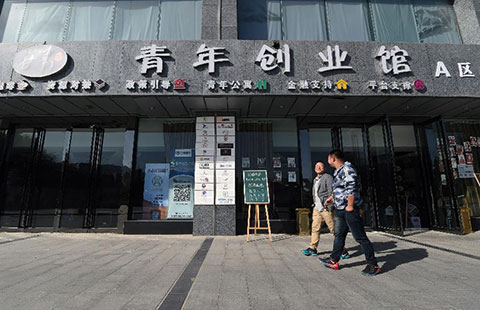Low inflation data reverses winning streak in equities
(Agencies) Updated: 2015-10-15 14:10The government announced over the weekend it will expand a relending trial to nine more cities and provinces, while Premier Li Keqiang said policymakers will increase fiscal support for shantytown redevelopment.
Unprecedented government efforts to stabilize share prices are likely to prove successful, said Jeff Yeh, whose Yuanta New China Fund has returned about 22 percent this year, outperforming 99 percent of China equity funds tracked by Bloomberg.
The Shanghai Composite's equity volumes have more than doubled from an almost one-year low on Sept 30, while volatility has slipped from the highest levels since 1997.
"Chances of the China stock market stabilizing are high," said Yeh, who oversees about $41 million in the fund. The money manager is rebuilding his holdings of Chinese technology companies after they turned from bullmarket leaders into the biggest losers of the subsequent crash.
Gauges of consumer-discretionary and technology stocks fell at least 1.6 percent for the biggest declines among 10 sub-indexes in the CSI 300.
Great Wall Motor, the largest maker of SUVs, tumbled 7.4 percent for its biggest loss since Sept 15. FAW Car Co slid 5 percent.
This year, the China Automobile Association is predicting sales to grow at the slowest pace in four years as consumers canceled or postponed purchases amid the economic slowdown.
Leshi Internet, the biggest Chinese mainland-listed Internet video provider, lost 4.5 percent, paring a rebound to 42 percent since the August low. The technology sub-index in the CSI 300 has been best performer over the past month with a 19 percent advance.
Xiamen Tungsten Co jumped by the 10 percent daily limit after the firm said it will cap rare earth product output at about 90 percent of the 2015 quotas set by the government.
Margin traders increased holdings of shares purchased with borrowed money for a fourth day on Tuesday, with the outstanding balance of margin debt on the Shanghai Stock Exchange rising to 592.4 billion yuan ($93.4 billion).
- Wanda's Wang Jianlin takes back the richest crown from Alibaba's Jack Ma
- NDRC approves 218 fixed asset investment projects worth $285b
- China Jan-Sept outbound direct investment surges
- China-Pakistan Entrepreneurs International Seminar opens in Beijing
- China-Pakistan entrepreneurs' international seminar building platform to serve enterprises 'going global'
- Chinese companies eye Australia's leading beef producer
- Service industry helps with economic growth
- Pay system, e-commerce a good measure of spending

















